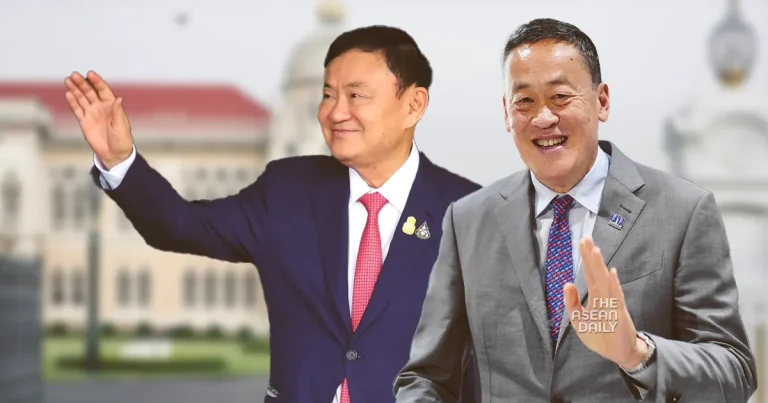249-2023 (NEW YORK) Speaking to reporters at the 78th Session of the United Nations General Assembly (UNGA78) in New York, Prime Minister Srettha vehemently denied reports of offering Thaksin a position as his adviser. The denial comes in response to growing concerns about who holds the reins of power in the government, with Thaksin being widely perceived as having a significant influence on Srettha’s appointment.
During the press conference, Srettha clarified that his previous comments were misinterpreted. He explained that when asked by a reporter if he would seek advice from Thaksin on national affairs, his response was that he would do so if it proved necessary. However, he emphasized that he did not imply any plans to appoint Thaksin as an official adviser.
In a recent interview with Bloomberg Television, Srettha expressed his intent to seek political guidance from Thaksin once the latter is released from prison. Srettha also mentioned his willingness to consult with all former prime ministers, including Gen Prayut Chan-o-cha, Anand Panyarachun, and Somchai Wongsawat.
Praising Thaksin’s popularity as a former prime minister, Srettha acknowledged the importance of seeking his opinion once he regains his freedom. However, Srettha firmly believed that Thaksin would decline any offer to become an official adviser, citing the former prime minister’s other commitments and responsibilities.
In a separate development, Pita Limjaroenrat, the former leader of the Move Forward Party (MFP), expressed support for Srettha’s desire to seek advice from Thaksin on matters related to his prime ministerial duties. Limjaroenrat revealed that the MFP, in collaboration with other parties, was drafting legislation to grant amnesty to political offenders, indicating the party’s alignment with Thaksin’s political agenda.
Meanwhile, Srisuwan Janya, a frequent petitioner, announced his intention to file a petition demanding the Department of Corrections to disclose a daily record of Thaksin’s treatment and visitors at the Police General Hospital. Janya argued that such records, as per regulations outlined by the Justice Ministry, are not confidential medical documents and should be made public. He emphasized the importance of upholding the law without regard to an individual’s financial or political status.




